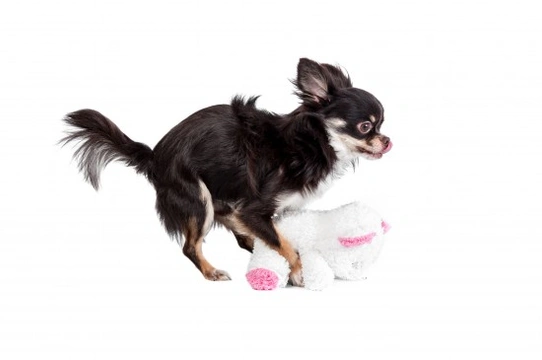
Managing Sexual Behavior in Male Dogs: Tips & Advice
Un-neutered male dogs naturally have rather different instincts and personality traits than neutered dogs, as their main overwhelming instinct and urge is to breed, and to display the territorial behaviour that breeding involves, by defending their space from other male dogs. Exactly how pronounced this type of behaviour is will vary from dog to dog, and will also vary depending on their proximity to a bitch in heat! It is only to be expected that dogs who can scent a bitch in heat will have a one track mind and do everything in their power to breed, but what if your un-neutered male dog displays overtly sexual behaviour at other times too, or is aggressive or dominant with it?
This type of behaviour can be really problematic, and it is not necessarily a behavioural issue only, as it is closely tied to hormone levels and natural alpha dog behaviour.
Read on to learn more about the causes of excessively sexual behaviour in male dogs, and what you can do to curb it.
What constitutes excessively sexual behaviour in dogs?
Un-neutered dogs will always have an eye out for a potential mate, and will generally be more territorial than neutered dogs in their day to day lives. However, for most un-neutered dogs, this is not problematic, and obviously, for the larger part of the history of canines, dogs lived side by side with humans without being neutered at all.
However, if your dog is prone to humping anything and everything from their bedding to your leg, often attempts to hump other dogs (of either sex) when out walking, becomes aggressive if you try to curb their humping, or is particularly aggressive and dominant, you likely have your hands full.
Not only are issues such as these unpleasant, they can also be highly problematic, and if your dog is aggressive about their sexual behaviour or territory, this needs addressing as soon as possible.
Medical reasons
First and foremost, it is important to get your dog checked out by the vet to find out if there is an underlying cause behind excessively sexual behaviour or aggressive sexual behaviour in your dog. A great many conditions and issues can interfere with your dog’s hormone levels and moods, causing them to act out in unusual ways. Conditions including allergies, hormone imbalances, urinary tract infections and priapism, as well as many others, can potentially lead to overtly sexual behaviour, or aggressive sexual behaviour in the dog.
Behavioural reasons
A range of behavioural issues can lead to extremely heightened sexual behaviour, and not all of them are directly related to sexual urges. Many dogs get into a pattern of humping behaviour due to sheer boredom, as a stress reaction, or in excitement for a wide range of reasons. Dogs that spend a lot of time on their own and without enough stimulation are particularly prone to developing a humping habit.
Humping can then become something of a go-to fix for boredom or dissatisfaction, or your dog might simply have realised that he likes the feeling, and becomes rather one-track minded about it all!
If your dog is apt to try and mount other dogs that they meet, this too is not necessarily connected directly to your dog’s un-neutered status, and can be due to a range of reasons. They might simply view humping as fun and part of normal play, or it can be a dominant manoeuvre to let the other dog know that they think that they are the alpha!
The same is true if your dog is particularly territorial or aggressive over resources. They might simply have learned that if they act aggressively, they will get their own way or not be challenged, and as this has always worked for them, they will continue to do so until they encounter a firm handler that can put a lid on this behaviour.
Getting to the root of the issue, if the overtly sexual or aggressive behaviour is due to a learned reaction, will help you to deal with it.
Neutering
Obviously, having your dog neutered if they display overt and inappropriate sexual behaviour or sexual aggression is the final tool in your fight to curb their behaviour, and it is certainly something that you should consider.
However, neutering will not necessarily correct overtly sexual behaviour in the dog, as by the time they are neutered as an adult, their behaviour might have become ingrained as habit rather than having a hormonal cause. It is certainly true that neutering, and so removing a dog’s desire and urge to breed, should go a long way towards removing one of the main triggers for aggressive sexuality or dominant breeding behaviour, but bear in mind that training and correct handling will also be required to deal with the issue.
There is a lot of merit in getting your dog checked by your vet and discussing all of the potential ways to deal with overtly sexual behaviour or aggression, as neutering may not be the only, or best option for all dogs.



